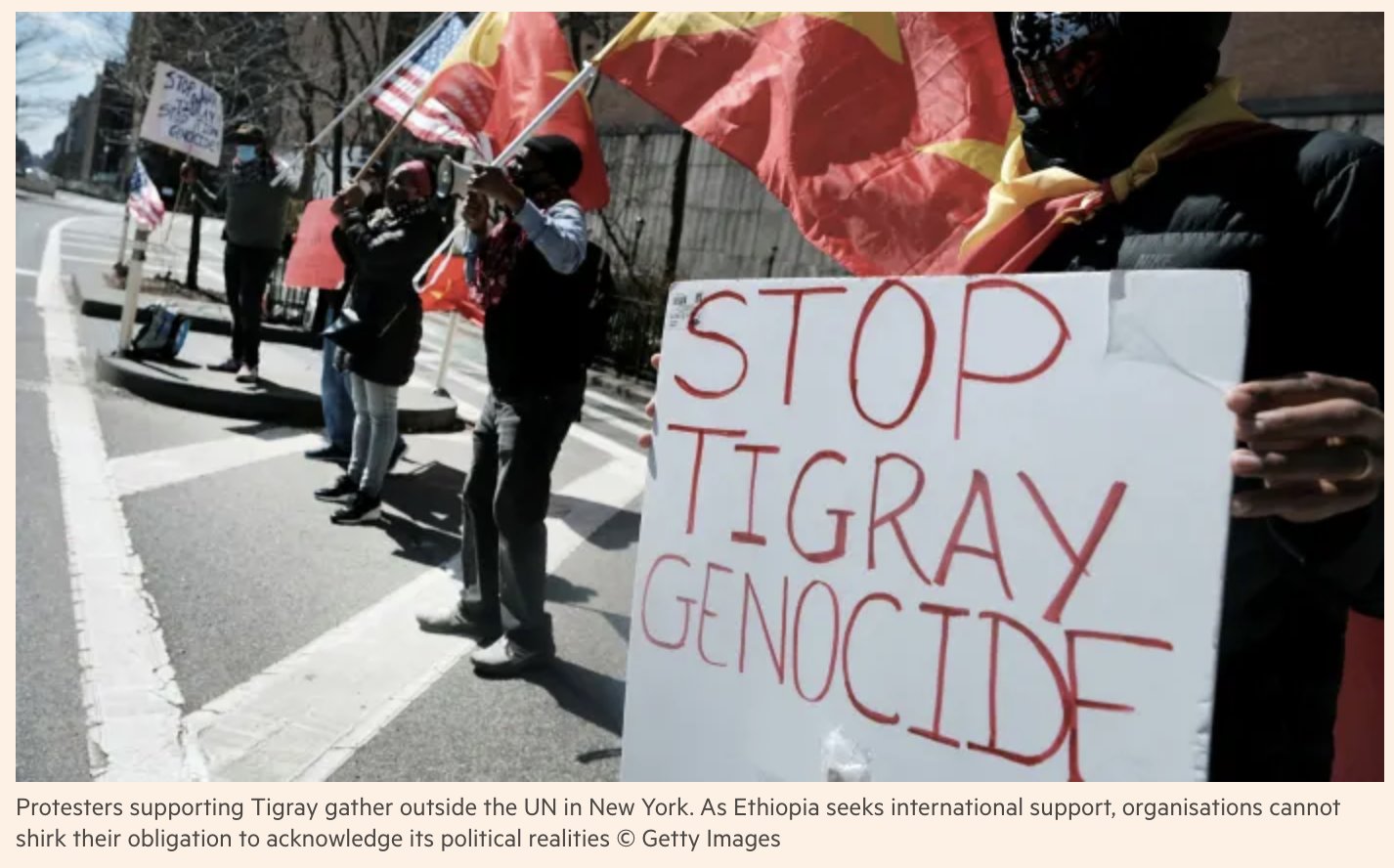

The United Nations on Thursday warned that sexual violence was being used as a war weapon in Ethiopia’s Tigray region.
UN aid chief Mark Lowcock told the United Nations Security Council that sexual violence was being used by Eritrean and Ethiopian soldiers in the Tigray region, Reuters reported.
The top public health official for the interim administration in Tigray Dr. Fasika Amdeselassie told Reuters that 829 rape cases have been reported at five hospitals since the fighting began in November.
“Nearly a quarter of reports received by one agency involve gang rape, with multiple men assaulting the victim; in some cases, women have been repeatedly raped over a period of days. Girls as young as eight are being targeted,” Lowcock said.
The accusations are aimed at soldiers on all sides of the war, but Reuters talked to women who have been kidnapped and raped by Eritrea and Ethiopian soldiers for weeks.
The fighting has been between the Tigray People’s Liberation Front and Ethiopia’s central government with Etritean troops helping the latter.
Along with sexual violence, Lowcock said that people are dying from starvation in Ethiopia.
However, Ethiopia’s UN ambassador has pushed back against Lowcock’s report.
“Human rights violations are too serious and grave to be subjected to speculations. It is unfortunate the head of [the U.N. Office for the Coordination of Humanitarian Affairs] resorted to such an act before the UN Security Council,” Taye Atskeselassie Amde told Reuters.
Atskeselassie denied that there was a lack of “humanitarian access” and Lowcock was “behaving not like a humanitarian but a nemesis determined to exact some kind of retribution.”
White House national security adviser Jake Sullivan said last week that the humanitarian and human rights violations coming out of Ethiopia were a “grave concern.”
“Mr. Sullivan stressed that the United States is ready to help Ethiopia address the crisis, building on our longstanding bilateral partnership and friendship,” National Security Council spokesperson Emily Horne said.
more recommended stories
 In New Geopolitical Play, Trump Eyes Somaliland to Block China and Defeat Houthi
In New Geopolitical Play, Trump Eyes Somaliland to Block China and Defeat HouthiHARGEISA – April 12, 2025 —.
 A Celebration, a Surprise, and a Strategic Masterstroke: How Somaliland’s Irro Quietly Redirected Lasanod’s Political Hopes
A Celebration, a Surprise, and a Strategic Masterstroke: How Somaliland’s Irro Quietly Redirected Lasanod’s Political HopesBy Mohammed Yasin Omar LASANOD, SOMALILAND.
 Somaliland Parliament: Any Consequences from PM’s Visit Are Somalia’s Responsibility
Somaliland Parliament: Any Consequences from PM’s Visit Are Somalia’s ResponsibilityHARGEISA, April 12, 2025 — The.
 From Berbera to Washington: Somaliland’s Strategic Pitch for U.S. Support
From Berbera to Washington: Somaliland’s Strategic Pitch for U.S. SupportIn a comprehensive interview with The.

